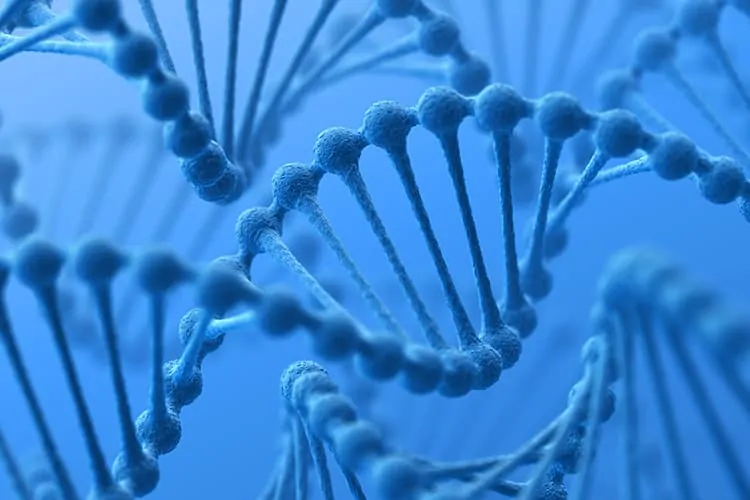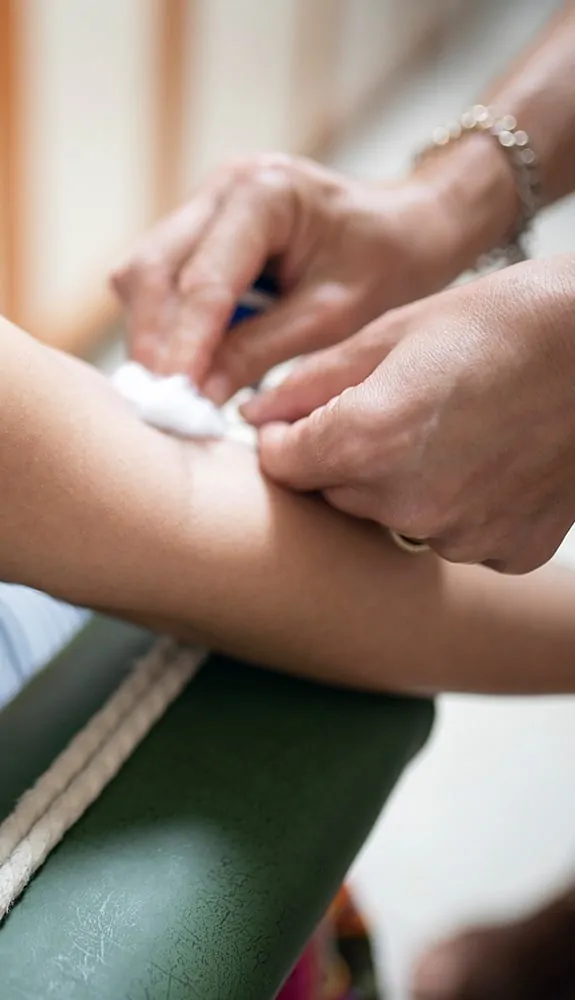Turner syndrome (TS) is a genetic condition which only affects girls and women. Read more about TS; what are the symptoms? Is it treatable and how does it affects the health and the fertility in general?
The human body is made up of millions of cells and typically, each cell has 46 (23 pairs) chromosomes. Each chromosome is a package of DNA, which contains the genetic information and instructions for growth and development. There are 22 pairs of numbered chromosomes (from 1 to 22) that are called autosomes. The other pair of chromosomes, X & Y, are called sex chromosomes. They determine whether an individual is male or female. A person who has two X chromosomes (46XX) are genetically female and a person who has one X and one Y chromosome (46XY) are genetically male.
What is Turner Syndrome?
Turner syndrome (TS) is a genetic condition which affects only girls and women. Women with Turner Syndrome do not have the usual pair of sex (XX) chromosomes. The second X chromosome, or part of the second X chromosome, is absent in some or all the cells of the body. About half of women with TS are “classical”, which means all of their cells are missing an X chromosome (45X)

and the others are “mosaic” which means different cells inside the same person have different chromosome packages. For example, some cells would have one X chromosome (45X), whilst the others have two X chromosomes (46XX) or the second X chromosome is partially absent with certain genes missing from some cells.
What causes Turner Syndrome?
Turner syndrome is not anyone’s fault. It doesn’t happen because of anything the parents did or didn’t do. Although the exact reasons and mechanisms are largely unknown, the loss or change of the X chromosome appears to happen during the formation of the egg or sperm and by chance. It is estimated that 1 in 2500 live-born girls are affected with TS. This makes it the most frequent sex chromosome abnormality in girls and women.
What causes Turner Syndrome?
What are the physical signs and symptoms seen in Turner syndrome?
Many girls and women do not have any symptoms related to Turner syndrome, but the following signs and symptoms are associated with TS. People with Mosaic TS tend to have fewer health problems than those with typical TS, as only some of their cells are missing the second X chromosome.
Physical signs and symptoms include:
-
Puffy neck or swollen hands and feet at birth
-
Short stature - 95% of all individuals with TS have short stature
-
Learning differences, especially with maths or in the ability to learn directions. These differences generally do not affect the overall intelligence.
-
Facial features - drooping of the upper eyelid, receding lower jaw
-
High arched palate
-
Webbed neck
-
Low posterior hairline
-
Broad chest and widely spaced nipples
-
Soft nails that turn upward at the ends when they are older
- Problems with the development of the kidneys - 30 - 40% of women with TS have congenital abnormalities of the urinary system. Sometimes there is only one kidney or the 2 kidneys are joined together (this is referred to as a ‘horse-shoe’ kidney because of how the joined kidneys are shaped)
- Short metacarpals (bones of fingers or knuckle
- Cubitus valgus (a deformity in which the forearm is excessively angled away from the body when the arm is extended at the side and the palm facing forward)
- Flat feet
- Pigmented nevi (coloured spots on skin)
- Hearing loss
-
Auto-immune disorders such as auto-immune thyroid disease, coeliac disease, inflammatory bowel disease and diabetes mellitus
-
Being overweight and having Type 2 diabetes
-
Osteoporosi
-
Problems with the heart and blood vessels - approximately 50% of women with TS have abnormalities with heart and blood vessels Certain gastrointestinal (stomach and intestine) conditions
- Certain gastrointestinal (stomach and intestine) conditions.

How does Turner syndrome affect reproductive health?
The type and severity of reproductive health problems associated with TS are variable.- Underdeveloped ovaries can lead to delayed or absent puberty – Only 20-30% of affected girls show some spontaneous pubertal development.
- Difficulty conceiving (infertility) – Underdeveloped ovaries do not produce eggs to be fertilized. There is a rapid loss of eggs within the ovaries in girls born with ovarian activity. Conditions associated with TS, such as poorly controlled diabetes, thyroid disease, and obesity interfere with ovulation and also increase the risk of miscarriage.
- Premature ovarian insufficiency (POI) – early menopause before the age of 40 years is very common in women with TS
- Relationship issues influencing parenthood – A study found that women with TS have fewer sexual partners and less sexual confidence, which might influence their relationship and reproductive choices.
How is the diagnosis of Turner Syndrome made?
The diagnosis of TS is based on clinical examination, blood tests for hormones, and chromosome analysis (karyotyping).
The diagnosis can also be made prenatally (while the baby is still in the womb). Certain features on an ultrasound scan may raise suspicion that the baby may have TS in which case further genetic testing by amniocentesis or chorionic villi sampling in pregnancy, or by doing a karyotype after delivery, is recommended to confirm the diagnosis.
Is there a cure or treatment for TS?
As TS is a genetic disorder, unfortunately there is no cure. However, treatment strategies are available to improve the health of those who are known to have TS. Depending on the severity of the condition and the needs of the individual, girls and women with TS will be looked after by a multi-disciplinary team of specialists involving endocrinologists, geneticists, cardiologists, audiologists, speech therapists, gynaecologists, fertility specialists, psychologists, renal physicians, and others.
Growth hormone which helps with childhood growth will be needed in childhood for short stature. Hormone replacement therapy with female hormones (oestrogen and progestogen) will be given to bring about the physical signs of puberty and for the development of internal reproductive organs such as the uterus (womb). Women with premature ovarian insufficiency will be recommended to take hormone replacement therapy (oestrogen and progestogen) until the age of natural menopause (generally about 51 years) to maintain bone health and for cardio-vascular (heart and blood vessel) protection.
Is it safe for women with Turner Syndrome to become pregnant?
Most TS women do not pass their condition on to their children. Women with TS are at an increased risk of dissection/rupture (bursting) of the aorta (a large blood vessel arising from the heart) in pregnancy. Women with TS have a higher risk of pregnancy complications such as miscarriage, diabetes and blood pressure problems. Their pregnancies have an increased risk of preterm birth and low birth weight.
Women with TS should have specialist advice and medical tests (including a cardiac MRI scan) before trying to get pregnant. In pregnancy, women with TS

should ideally be managed by a multidisciplinary team of specialists to include obstetricians, cardiologists and anaesthetists. Some women with TS may be advised to avoid carrying a pregnancy.
What are the fertility options for women with Turner Syndrome?
Up to 8% of women with TS conceive naturally and have live births. Assisted reproductive techniques (ART) such as in vitro fertilisation (IVF) or intracytoplasmic sperm injection (ICSI) is recommended for women with TS if the couple present with fertility problems as long as the ovaries are working normally, which can be assessed by doing blood tests and an ultrasound scan of the pelvis.
ART using donor eggs and male partner’s sperm will enable women with TS and premature ovarian insufficiency to carry a pregnancy. The use of a donor embryo(s), if available, will be an alternative option in these circumstances.
Intra-uterine insemination (IUI treatment) or IVF treatment using donor sperm are the fertility treatment options for TS women who are single, but wish to conceive, or if in same-sex relationship, provided the ovaries are functioning normally.
For TS women who have premature ovarian insufficiency and are in same-sex relationship, IVF using donor eggs and donor sperm or the use of a donor embryo(s), if available, are the treatment options to try to conceive.
IVF using donor eggs and donor sperm is an option for women with TS and premature ovarian insufficiency wishing to conceive as a single parent.
Surrogacy can be an option for women with TS who are advised not to carry a pregnancy due to heart problems or when there is an issue identified with the growth of the womb. However, surrogacy is not an option in all countries.
Mature egg freezing or embryo freezing (depending on the social circumstances) are the fertility preservation options for women with TS whose ovaries are working normally, but they are not ready to extend the family for various reasons. Freezing of the ovarian tissue and re‐transplantation of the ovarian tissue into the pelvis is still considered experimental and is available only in some tertiary centres.
If fertility treatments are not acceptable for women with TS, they may find alternative parenting options such as adoption and fostering as realistic and acceptable. Women with TS may opt to remain child‐free, a choice which may be influenced by various factors.



